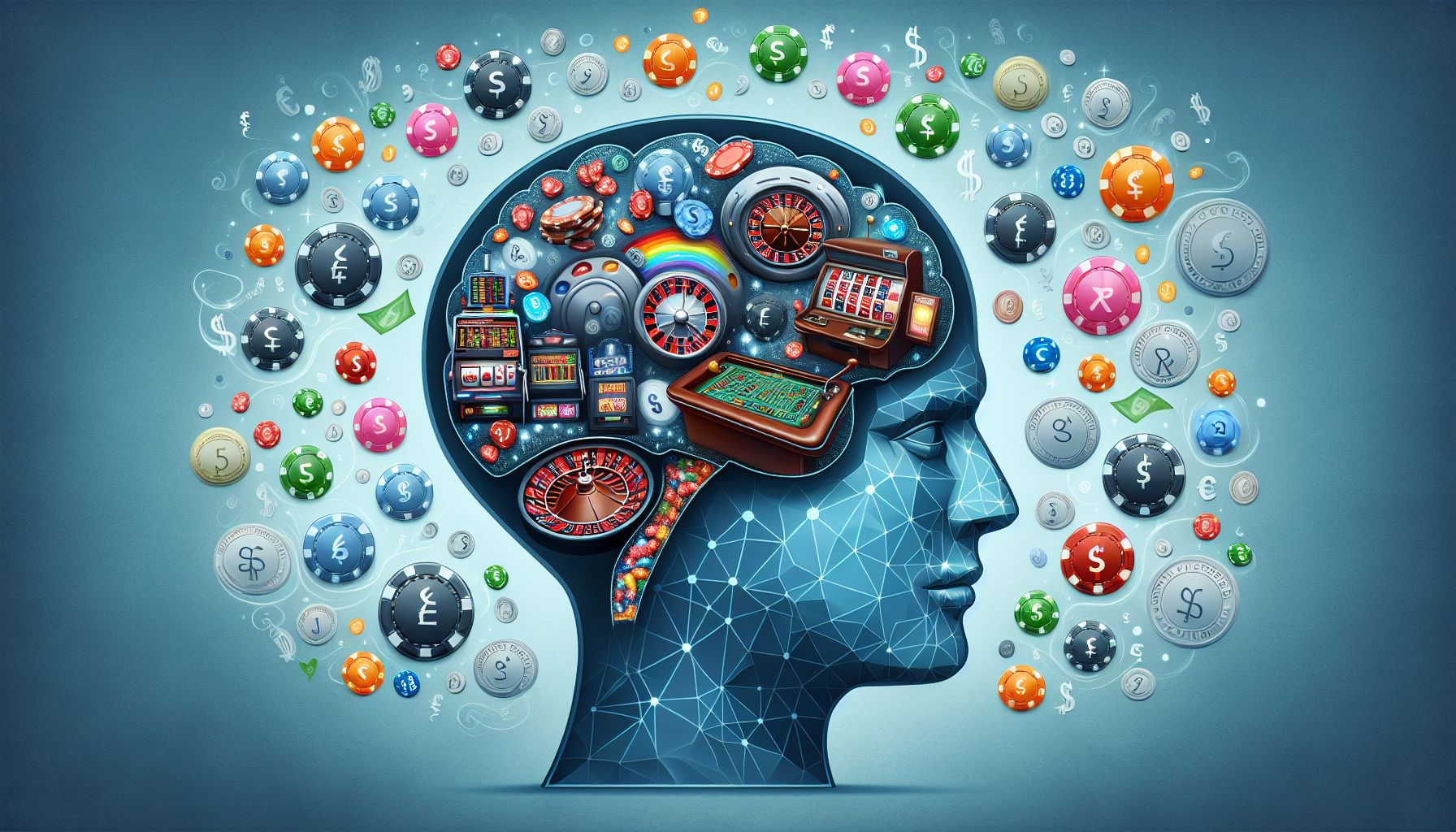In today’s society, casino games have become a popular form of entertainment. People of all ages and backgrounds can be seen indulging in various games, from slot machines to card games, in hopes of winning big. However, have you ever stopped to wonder why we are so drawn to these games? Is it simply the thrill of winning money, or is there something deeper at play?
The answer lies in the psychology behind casino games. These games are designed to tap into our deepest desires and emotions, making us crave the rush of adrenaline and the possibility of winning big. In this blog post, we will explore the psychology of casino games and uncover the reasons behind our fascination with them.
The Power of Rewards
One of the key factors that draw us to casino games is the potential for rewards. Our brains are wired to seek rewards, whether it be in the form of food, money, or other desirable outcomes. When we win at a casino game, our brain releases dopamine, a chemical that is associated with pleasure and happiness. This creates a sense of satisfaction and reinforces the behavior of playing the game.
Moreover, the unpredictability of rewards in casino games is what makes them so alluring. Our brains are wired to respond more strongly to unexpected rewards, making the win even more exhilarating. This uncertainty of outcomes also keeps us coming back, as we are constantly chasing that rush of excitement and the possibility of striking it rich.
The Escape from Reality
In our day-to-day lives, we are often bogged down with responsibilities, stress, and challenges. Casino games provide an escape from reality, where we can forget about our worries and immerse ourselves in the game. The bright lights, sounds, and constant action in a casino create an environment different from our everyday routine, making it an attractive escape.
Furthermore, the fast-paced nature of casino games keeps our minds occupied, preventing us from dwelling on negative thoughts or feelings. This is especially appealing for individuals who are facing difficult situations in their lives and are seeking a temporary distraction.
The Social Aspect
Apart from the rewards and escape, another reason why we are drawn to casino games is the social element. Casinos are often seen as a communal space, where people come together to play, chat, and even make new connections. This social aspect adds to the overall experience and keeps us engaged for longer periods of time.
Moreover, humans are social creatures and are influenced by the actions of others. When we see someone else celebrating a big win, it creates a sense of envy and motivates us to continue playing in hopes of achieving the same. This phenomenon, known as “social proof,” is especially evident in casinos, where big wins are often publicized and celebrated.
The Psychological Tricks Used by Casinos
It’s no secret that casinos use various psychological tactics to keep players hooked and increase their profits. These tactics are based on the principles of human behavior and are highly effective in influencing our decisions. Let’s take a look at some of the most common psychological tricks used by casinos.
The Illusion of Control
In casino games, players are often given the illusion of control. For example, in games like blackjack or poker, the player has some control over the outcome through their decisions and strategies. This creates a sense of agency, making players feel like they have some influence over their chances of winning. In reality, the house always has the advantage, but this illusion of control keeps players engaged and hopeful.
Near-Miss Effect
The “near-miss” effect is a well-known psychological concept used in casinos. It refers to the experience of almost winning, which can be just as satisfying as an actual win. The visual and audio cues in slot machines are specifically designed to create near-misses, triggering the release of dopamine in the brain. This keeps players chasing the win, even after multiple near-misses.
The Gambler’s Fallacy
The gambler’s fallacy is a common cognitive bias that leads us to believe that a random event is more likely to occur due to previous occurrences. For example, if a person keeps losing at a game, they may start to think that their chances of winning have increased, leading them to continue playing. Casinos capitalize on this fallacy by promoting the idea that a win is just around the corner.
The Dark Side of Casino Games
While casino games can be a fun form of entertainment, they also have a dark side. For some individuals, the rush of winning and the potential for rewards can become an addiction. Problem gambling can lead to financial, emotional, and psychological issues, ultimately impacting a person’s overall well-being.
Moreover, casinos are designed to keep players playing for as long as possible, sometimes leading to excessive gambling and financial loss. The constant stimulation and lack of windows or clocks in casinos can also cause players to lose track of time and their surroundings, a phenomenon known as “casino-induced dissociation.”
Conclusion
In conclusion, the psychology of casino games plays a significant role in our attraction to them. The potential for rewards, the escape from reality, the social aspect, and the psychological tricks used by casinos are all factors that keep us coming back for more. However, it is essential to be aware of the potential risks involved and to gamble responsibly. As the saying goes, “the house always wins,” and it’s important to remember that the odds are never in our favor. So the next time you find yourself in a casino, remember the psychology behind the games and play responsibly.



